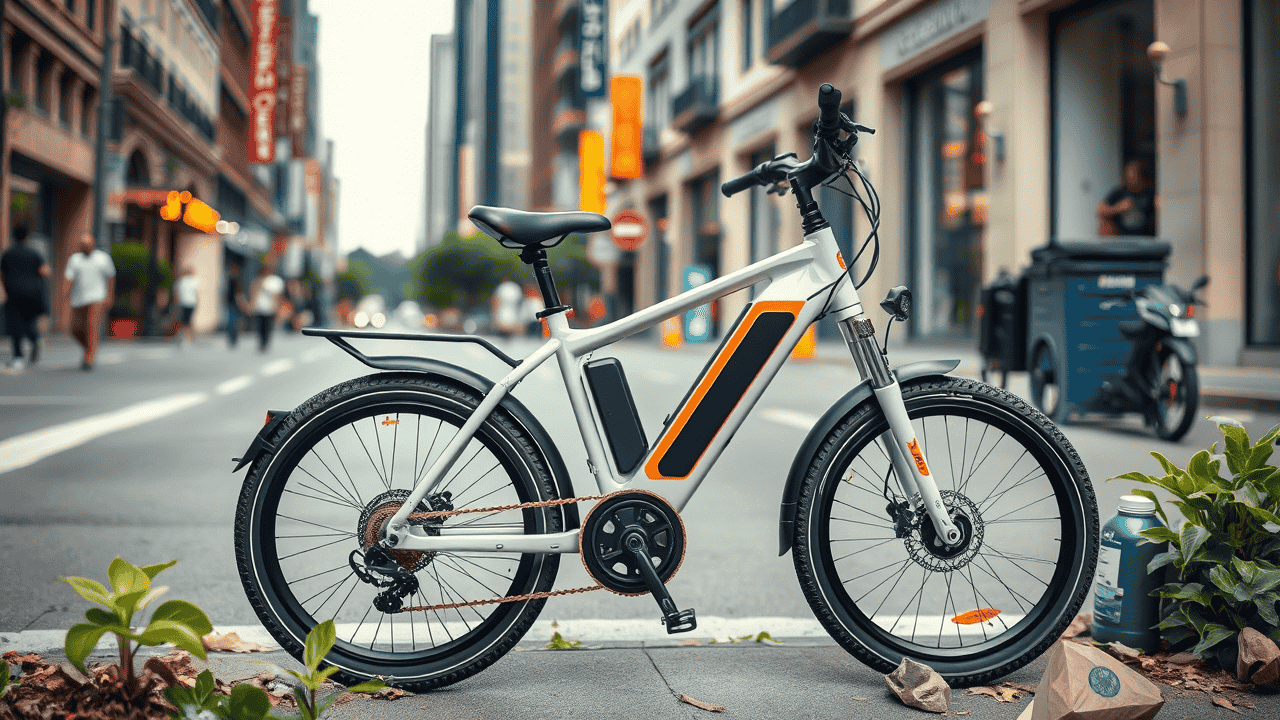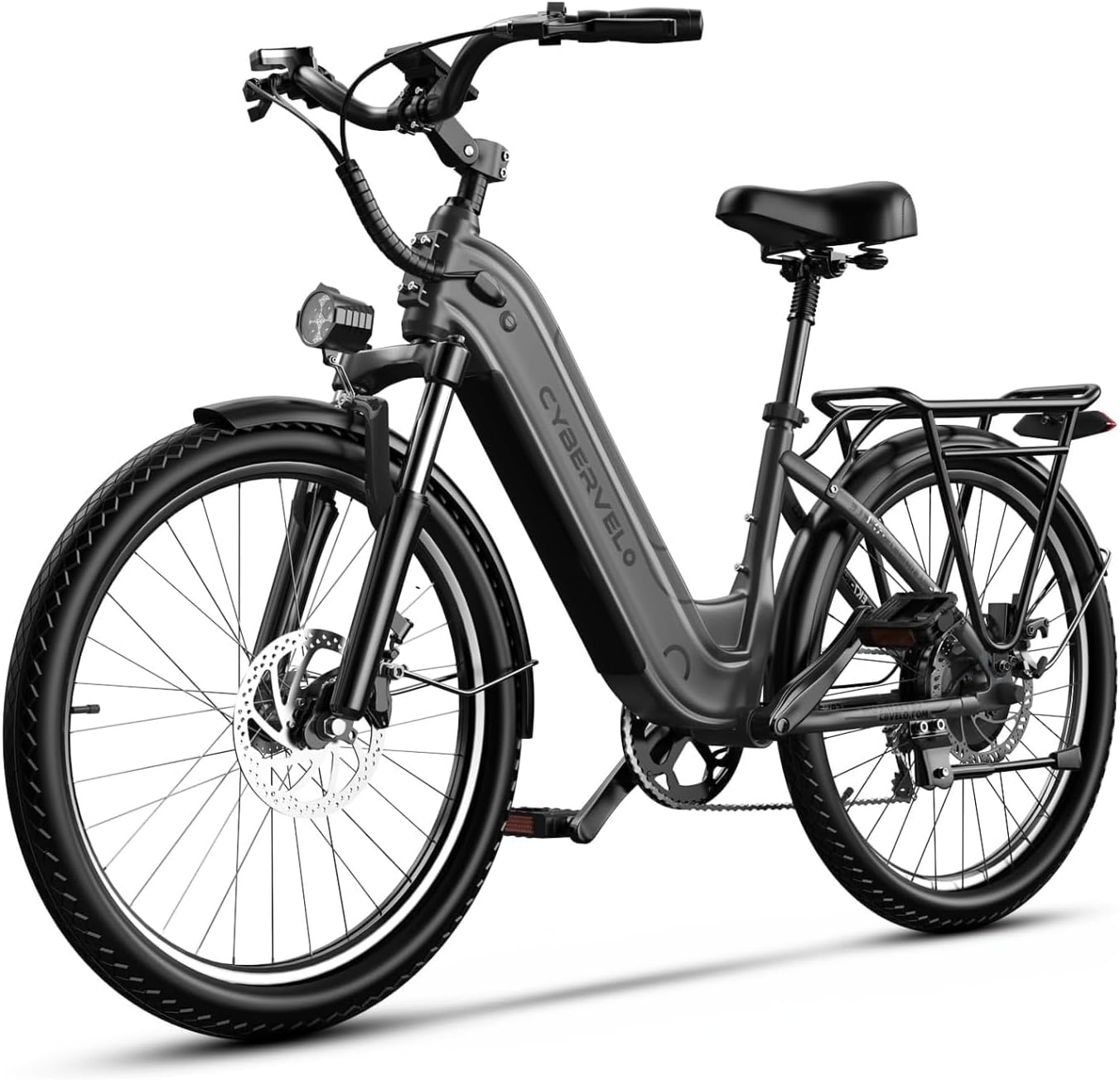Why Ebikes Are the Future of Sustainable Transportation

Electric bikes are transforming urban mobility, offering a sustainable, cost-effective alternative to cars. Learn how ebikes are shaping the future of transportation through environmental benefits, health advantages, and innovative policy support.
Understanding Ebikes
Ebikes are bicycles equipped with an electric motor that assists riders, reducing the effort needed to pedal. They come in two primary forms:
- Pedal-Assist: The motor activates during pedaling, providing a boost up to a set speed.
- Throttle: The motor propels the bike without pedaling, similar to a scooter.
Ebikes are categorized into three classes based on speed and functionality:
| Class | Features | Max Speed | Common Use |
|---|---|---|---|
| Class 1 | Pedal-assist only | 20 mph | Commuting, leisure |
| Class 2 | Pedal-assist and throttle | 20 mph | Urban delivery, casual |
| Class 3 | Pedal-assist only, higher speed | 28 mph | Long commutes, fitness |
Environmental Benefits
Ebikes are a cornerstone of sustainable transportation due to their minimal environmental impact. They produce zero emissions during operation, unlike cars, which emit 271g of CO2 per kilometer compared to just 9g for ebikes.
Replacing car trips with ebikes can reduce CO2 emissions by 225 kg per year per rider, equivalent to a flight from Philadelphia to Chicago. Globally, sales are expected to reach 60 million units annually by 2025.
Health and Accessibility
Ebikes promote health by making cycling accessible to diverse groups, including older adults, individuals with disabilities, and those less physically fit. Electric assistance reduces effort, encouraging longer and more frequent rides.
Research shows ebike users get more exercise than traditional cyclists, improving cardiovascular health and reducing chronic disease risks like heart disease and diabetes.
Economic Benefits
Ebikes deliver significant economic advantages for individuals and society. For users, they eliminate fuel costs and reduce maintenance expenses compared to cars. In the U.S., adoption in top states could save $11.5B over 10 years in fuel and maintenance costs.
Market Trends and Growth
The ebike market is booming. In the U.S., it was valued at $1.98 billion in 2022 and is projected to reach $7.49 billion by 2029. Globally, sales are expected to hit 60 million units annually by 2025.
Key trends include:
- Smart Technology: GPS, anti-theft systems, V2V communication
- Battery Improvements: Lithium-ion price drops by 70% by 2030
- Fat-Tire Ebikes: Popular for varied terrains
- Subscription Services: Flexible rental models gaining traction
| Market Trend | Details | Numbers |
|---|---|---|
| U.S. Market Value | Growing from $1.98B (2022) to $7.49B (2029) | $1.98B (2022) |
| Global Sales | Expected to reach 60M units annually by 2025 | 130M in China (2020) |
| Production Investment | Germany: +25% (2023); Netherlands: tripled capacity in 2 years | 738K units sold (2022) |
| Battery Recycling | France: 80% recycling rate (2023), expected to double ebikes by 2025 | 3M ebikes in France (2023) |
Challenges and Solutions
Despite benefits, challenges remain:
| Challenge | Solution |
|---|---|
| Infrastructure | Expand lanes & charging (e.g., Denver investments) |
| Safety | Connected bikes, C-V2X, inflatable helmets |
| Battery Recycling | New designs & start-ups like Reycle |
| Cost | Rebates (e.g., California’s $2,000 vouchers) |
| Regulations | Standardize laws (E-BIKE Act) |
Government Support and Incentives
Worldwide policies are promoting ebike adoption:
- California: Up to $2,000 vouchers for low-income residents
- Federal: E-BIKE Act proposes 30% tax credit up to $1,500
- Italy: Offers vouchers and ride incentives (Florence: 20¢/km)
Case Studies
| Program / Location | Impact |
|---|---|
| Denver, CO | 4,700 ebikes, 65% low-income, 26 miles/week |
| Vermont | First state-wide program, reduced emissions |
| Can Do Colorado | Improved access for low-income workers |
| Top 10 U.S. Cities | 1.18M tons CO2e avoided, $400.5M savings |
Future Outlook
The future of ebikes is bright, with advancements in technology and policy driving adoption. Improved batteries, connected systems, and infrastructure expansion will further integrate ebikes into daily life.
End Note
Ebikes are revolutionizing sustainable transportation in 2025, offering environmental, health, economic, and urban mobility benefits. With booming markets, supportive policies, and technological innovations, they are poised to transform how we move. Joining the ebike movement is not just a choice—it’s a step toward a greener, healthier, and more connected future.
Explore Our eBikes
Discover the electric bikes that make sustainable transportation possible

YorkE 26" Electric Bike – Updated Version

ACTBEST Race Electric Bike for Adults

DAMSON Dual Motor 2000W Electric Bike for Adults

Funhang Electric Bike for Adults, 26'' 1000W Peak Ebike

Vivi Electric Bike for Adults 26" Folding Ebike


